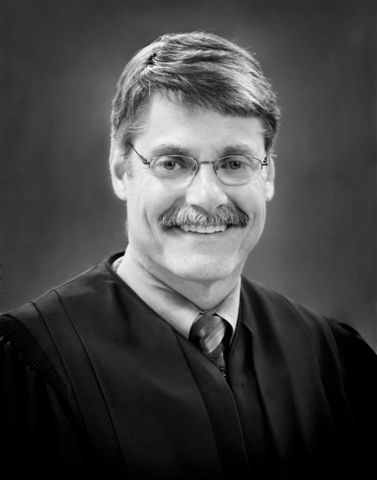 permanent injunction, declaring Wisconsin's Voter ID law to be unconstitutional, has been issued, in League of Women Voters v. Walker:
permanent injunction, declaring Wisconsin's Voter ID law to be unconstitutional, has been issued, in League of Women Voters v. Walker:March 12, 2012, Permanent Injunction Against Voter ID Law
The Court, by Judge Richard G. Niess, flatly rejected the defendants' reasoning:
The people’s fundamental right of suffrage preceded and gave birth to our Constitution (the sole source of the legislature’s so-called “plenary authority”), not the other way around. Until the people’s vote approved the Constitution, the legislature had no authority to regulate anything, let alone elections. Thus, voting rights hold primacy over implicit legislative authority to regulate elections. In other words, defendants’ argument that the fundamental right to vote must yield to legislative fiat turns our constitutional scheme of democratic government squarely on its head.The court went on to say:
This is why, over the years, although recognizing that the legislature and governor are accorded implicit authority to enact laws regulating elections, our Supreme Court has repeatedly admonished that such laws cannot destroy or substantially impair a qualified elector’s right to vote.
Because the Wisconsin Constitution is the people’s bulwark against government overreach, courts must reject every opportunity to contort its language into implicitly providing what it explicitly does not: license to enact laws that, for any citizen, cancel or substantially burden a constitutionally-guaranteed sacred right, such as the right to vote. Otherwise we stray into judicial activism at its most insidious. Our Constitution is a line in the sand drawn by the sovereign authority in this state – the people of Wisconsin – that the legislature, governor, and the courts may not cross, particularly under the all-too-convenient guise of strained construction and attenuated inference.The Court concluded:
The right to vote belongs to all Wisconsin citizens who are qualified electors, not just the fortunate majority for whom Act 23 poses little obstacle at the polls.
Accordingly, while the legislature and governor are constitutionally accorded broad authority to police fraud in elections, including through criminal and civil penalties, their power, like all police power, ends at the precise point where it transgresses the fundamental voting rights of Wisconsin citizens.......
Without question, where it exists, voter fraud corrupts elections and undermines our form of government. The legislature and governor may certainly take aggressive action to prevent its occurrence. But voter fraud is no more poisonous to our democracy than voter suppression. Indeed, they are two heads on the same monster.
A government that undermines the very foundation of its existence – the people’s inherent, pre-constitutional right to vote – imperils its legitimacy as a government by the people, for the people, and especially of the people. It sows the seeds for its own demise as a democratic institution.....
Judgment is rendered declaring 2011 Wisconsin Act 23’s photo ID requirements unconstitutional to the extent they serve as a condition for voting at the polls. Moreover, defendants are permanently enjoined forthwith from any further implementation or enforcement of those provisions.
No comments:
Post a Comment
I have a few simple comment rules:
(a) No
1. rudeness
2. falsehood
3. deception
4. unfair tactics
5. comment spam
6. shilling or trolling
(b) stay on topic; and
(c) anonymous comments are okay, but sign with a handle so we'll know which "Anonymous" you are.
Thanks for commenting.
Ray